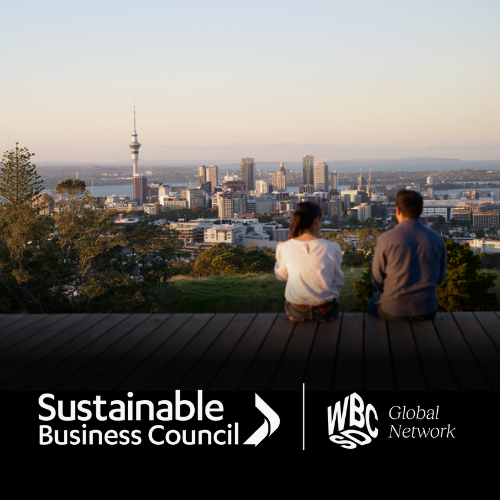International tool helps get business’ sustainability under way
The benefits of being a sustainable business are well established. The trouble is: business leaders often tell me they don’t know where to start.
Brands that show a clear commitment to sustainability outperform the competition, with four times the average sales growth. And companies who encourage their suppliers to review their use of resources see up to a 45% reduction in operating costs.
However, at first glance, sustainability can seem impenetrable.
It is a broad term that encompasses every aspect of a business’s social and environmental impact, from the sourcing of raw materials, through to manufacturing and staffing, health and safety, and emissions and waste.
But there is a way to cut through all that, by referring to the 17 easy-to-understand categories in the Sustainable Development Goals. Also known as the Global Goals, they were developed by the United Nations – in partnership with the international business community, governments and civil society.
The goals offer a framework for companies to connect to sustainability at a global scale. And I can see an increasing focus on them within New Zealand business: research shows more than half of Australian and New Zealand businesses are mapping their business strategies against the Global Goals.
Local companies take action
A survey of our members late last year found their priority goal was number 13 on “climate action”, which means many of New Zealand’s leading companies are prioritising climate change in their plans.
They want to work with the government to develop a long-term vision for the transition to a low emissions economy. And create momentum with investment, innovation, science based targets and the adoption of low emissions technologies.
For example, New Zealand seafood company Sanford has mapped its activities against eight Global Goals, and is now focusing on goal four – Quality Education.
It’s started a literacy and numeracy programme for its employees entitled “Keeping it fresh”, aiming to boost communication skills and confidence. The programme gets staff to identify an area they care about, such as like health and safety, and conduct surveys, analyse data, find solutions and present recommendations.
Countdown is also getting into the goals – incorporating those most relevant to its business in its corporate responsibility and employment planning.
Already they are focusing on goal five, “gender equality”. The chain has launched a pay equity review process of salaried staff – which has resulted in 700 salary adjustments so far. Countdown has also announced a family violence policy, which gives 10 days paid leave and counselling services to affected among its 18,000. And its transgender policy offers support to staff who make the transition and wish to be known by a new name.
There is a growing body of research that shows more diverse boards and workforces lead to better businesses, so this work brings great rewards for everyone.
Making a start
For those businesses that are stumped, start by focusing on one or two goals.
First review all the goals and identify those that align most closely to your business strategy, product or service.
Are you a welding business or a tour operator? Perhaps your business is most closely aligned with goal eight, “good jobs and economic growth”. Or if you are a restaurant, your business might be closely aligned with goal two, “zero hunger”.
Go online and look at the targets for each goal. Perhaps you could offer some work experience or take on an intern to help reduce the number of youths not in employment, education or training? Or you could come up with a company policy that promotes sustainable tourism, creating local jobs and promoting local culture.
Set and communicate your commitment to those goals, to your staff and to customers, if you can. And in a year’s time review your progress.
If you do this – you will be working on the same goals as thousands of other businesses around the world.
Now imagine the impact.
The Goals offer an opportunity for business, government and civil society to work together on the really big issues of our time. I see them as a way to make a difference in our own country, not just abroad.
Abbie Reynolds for Business Plus Magazine, July 2017
Contact:
Phone:
Email:

